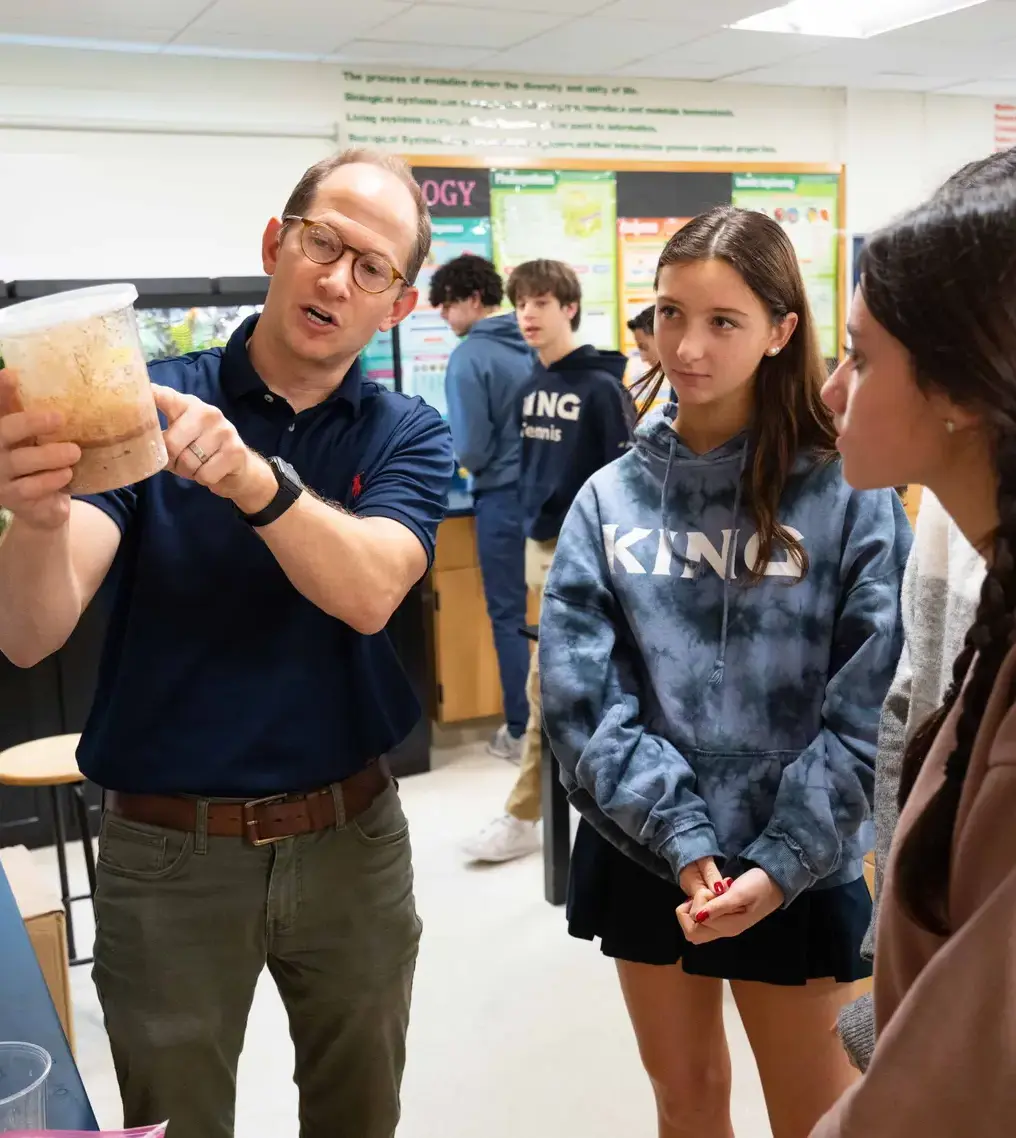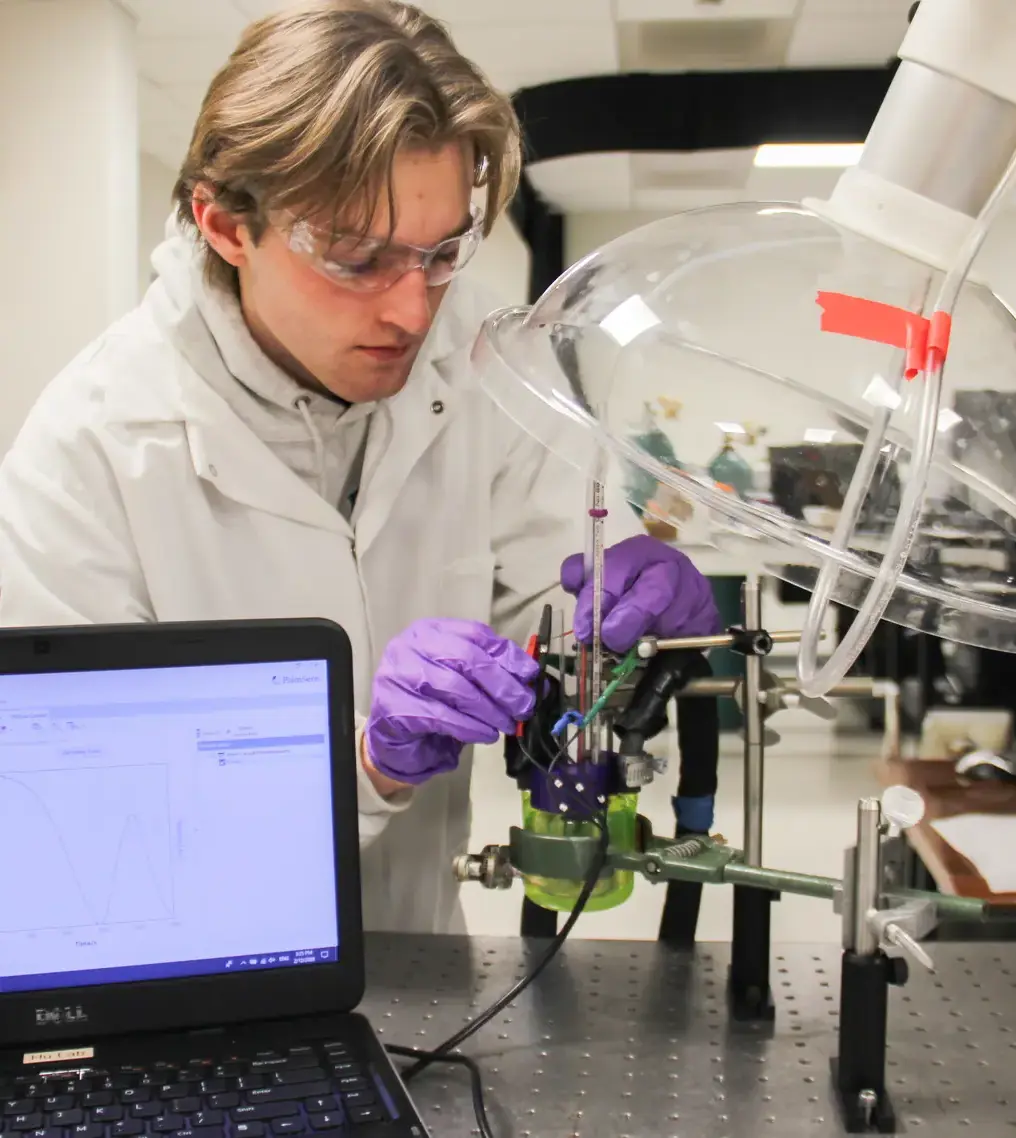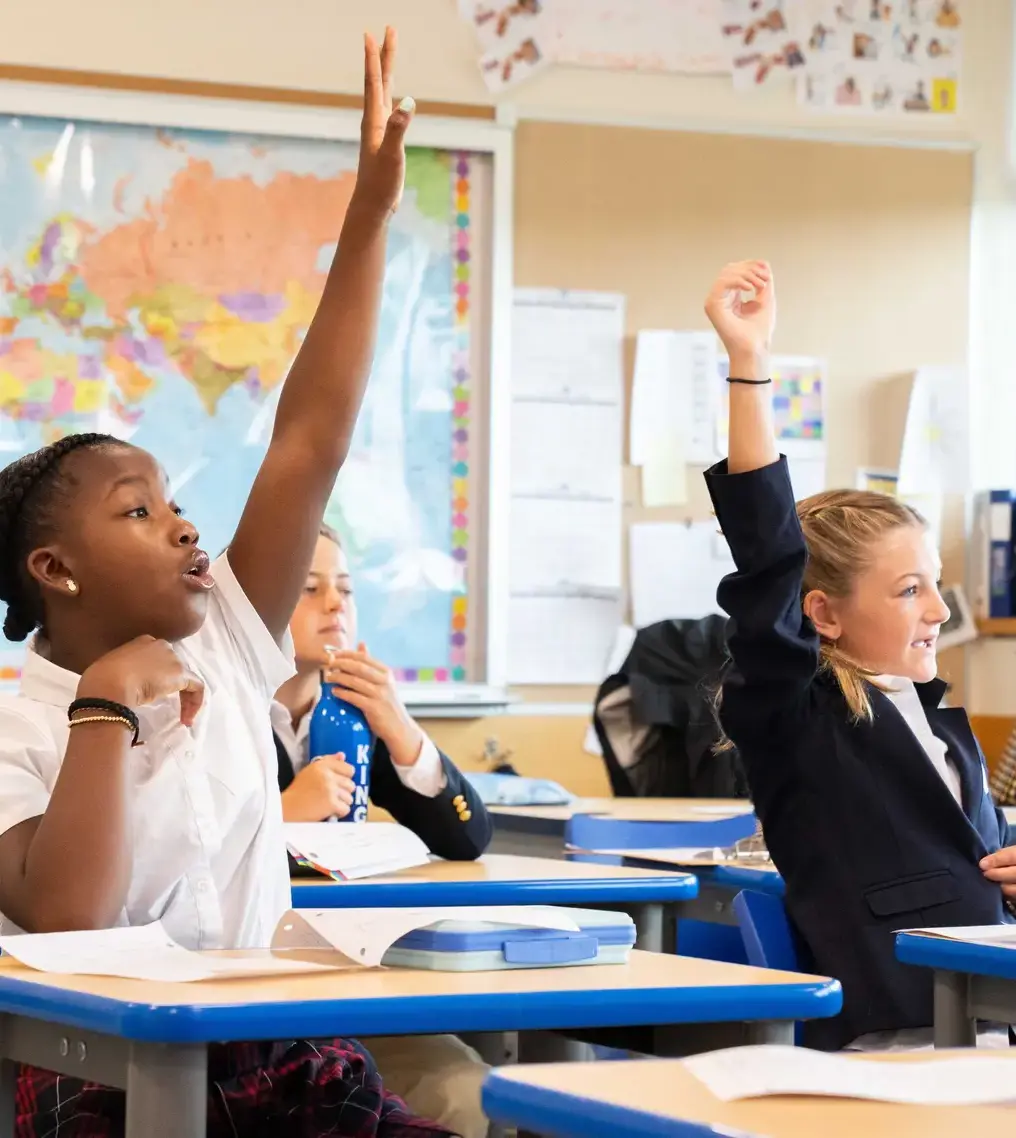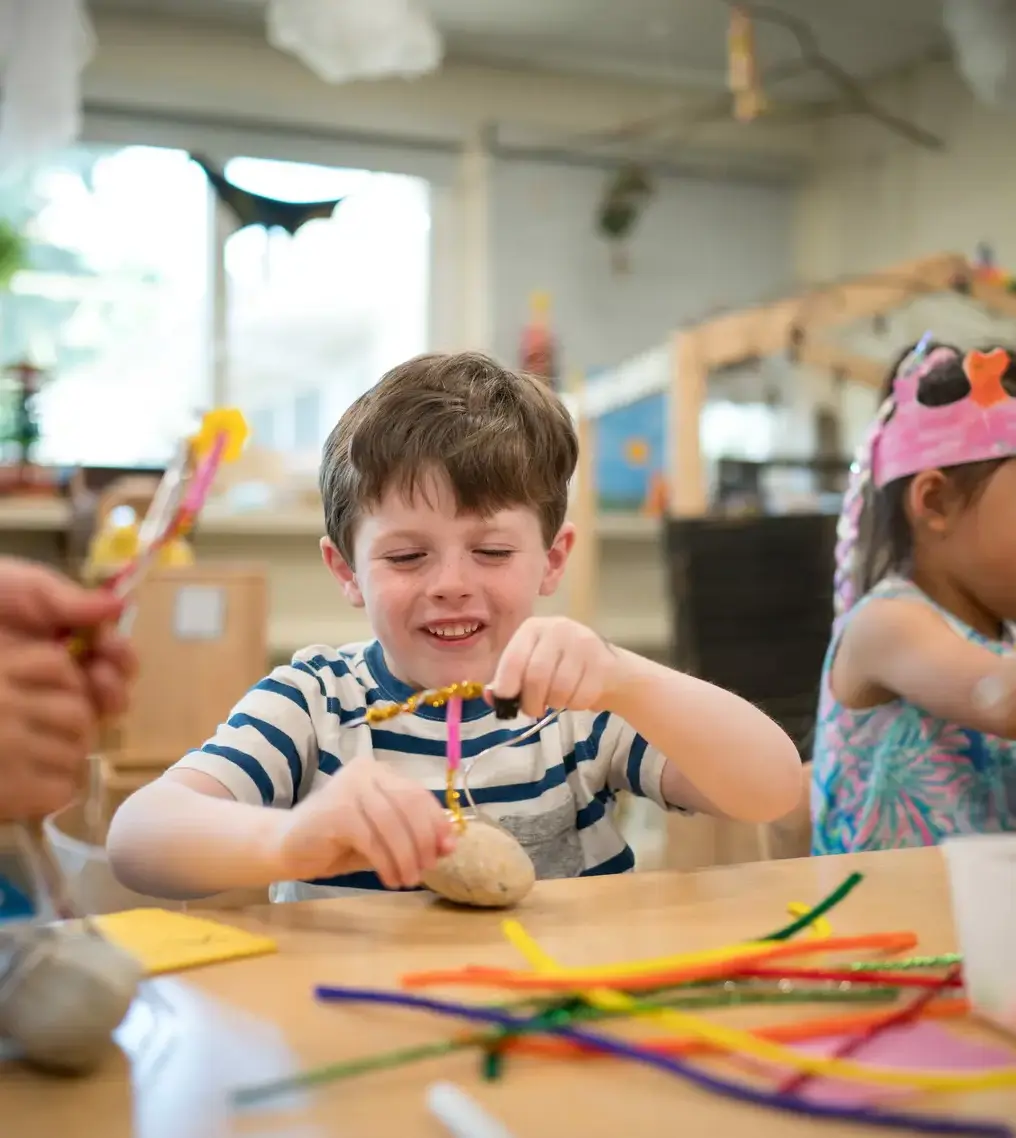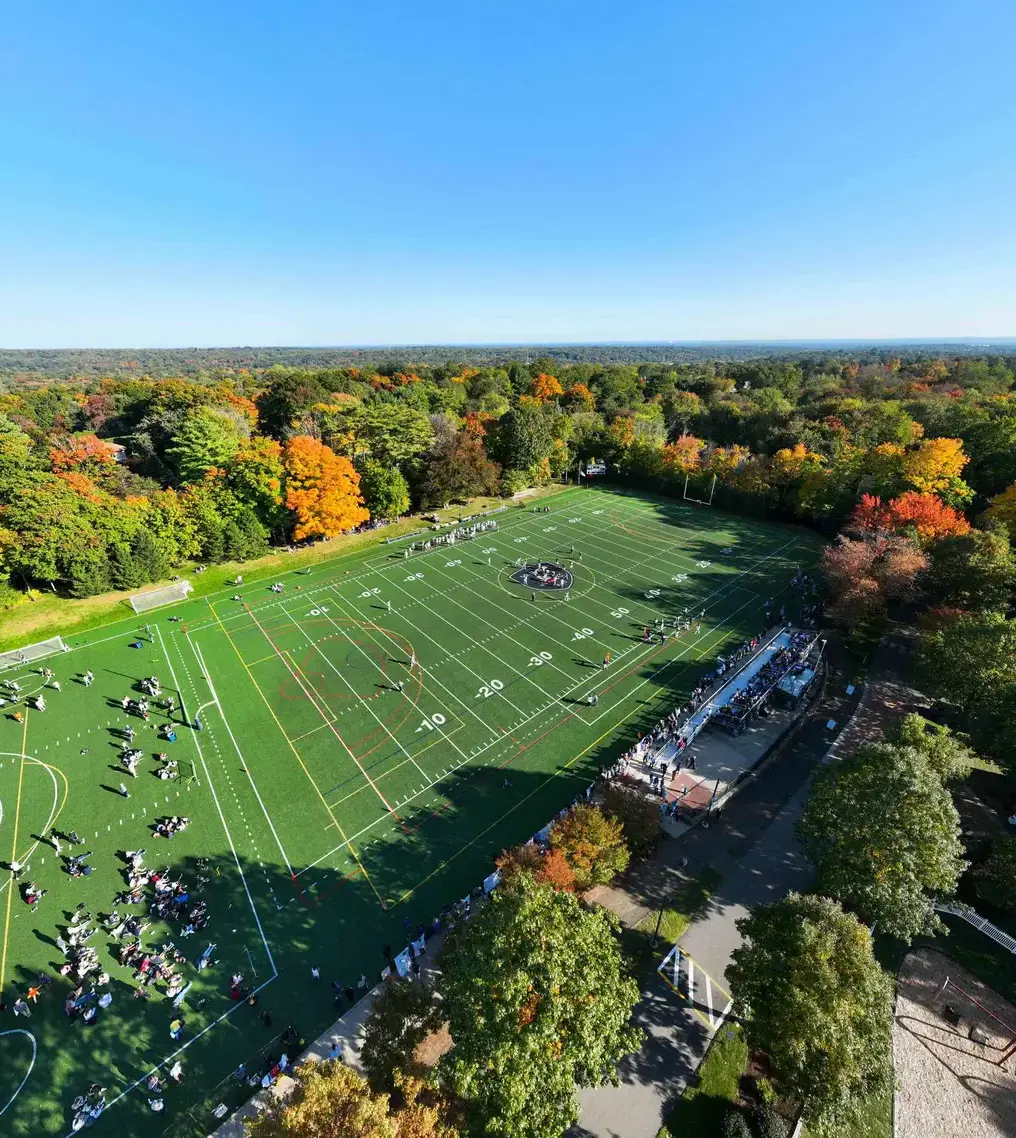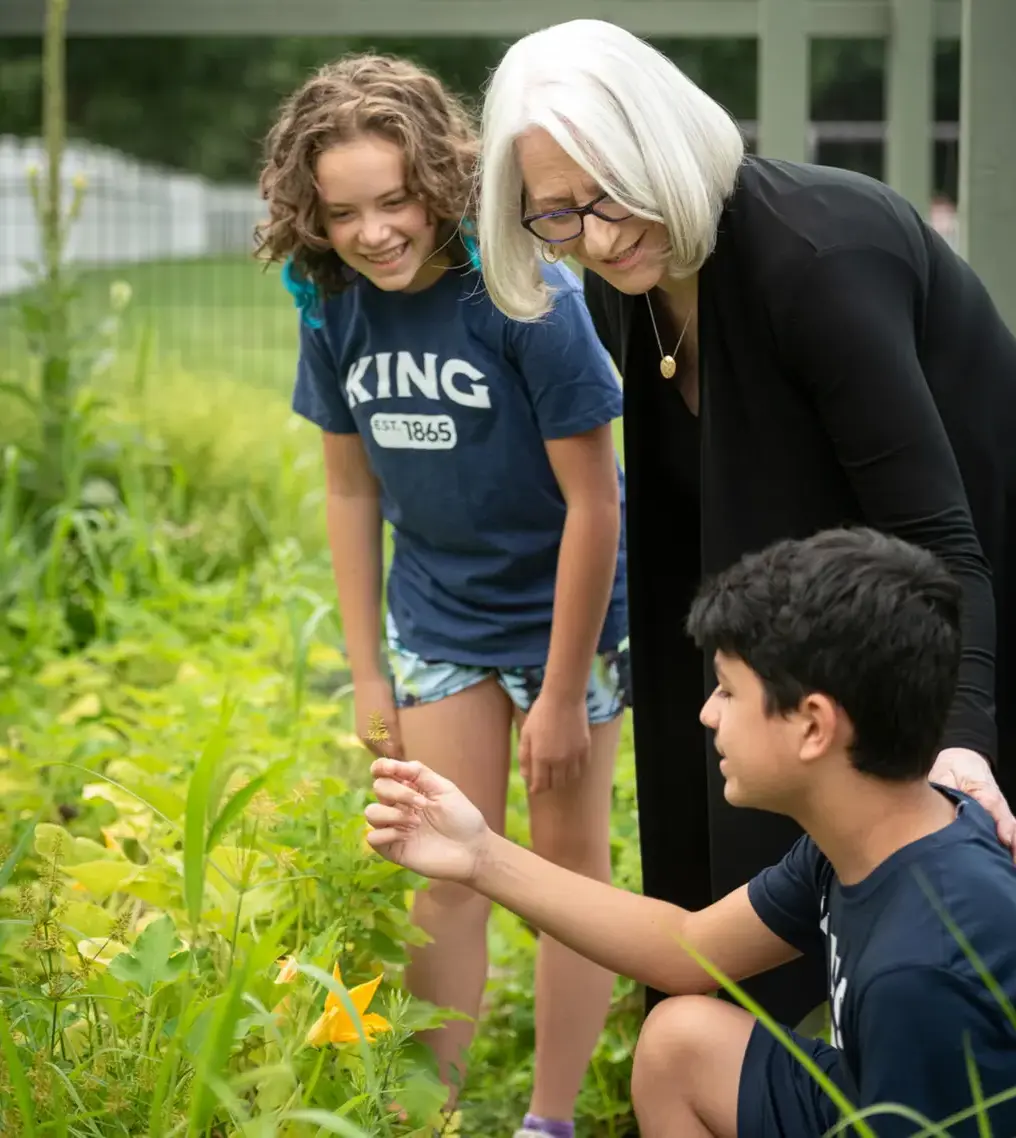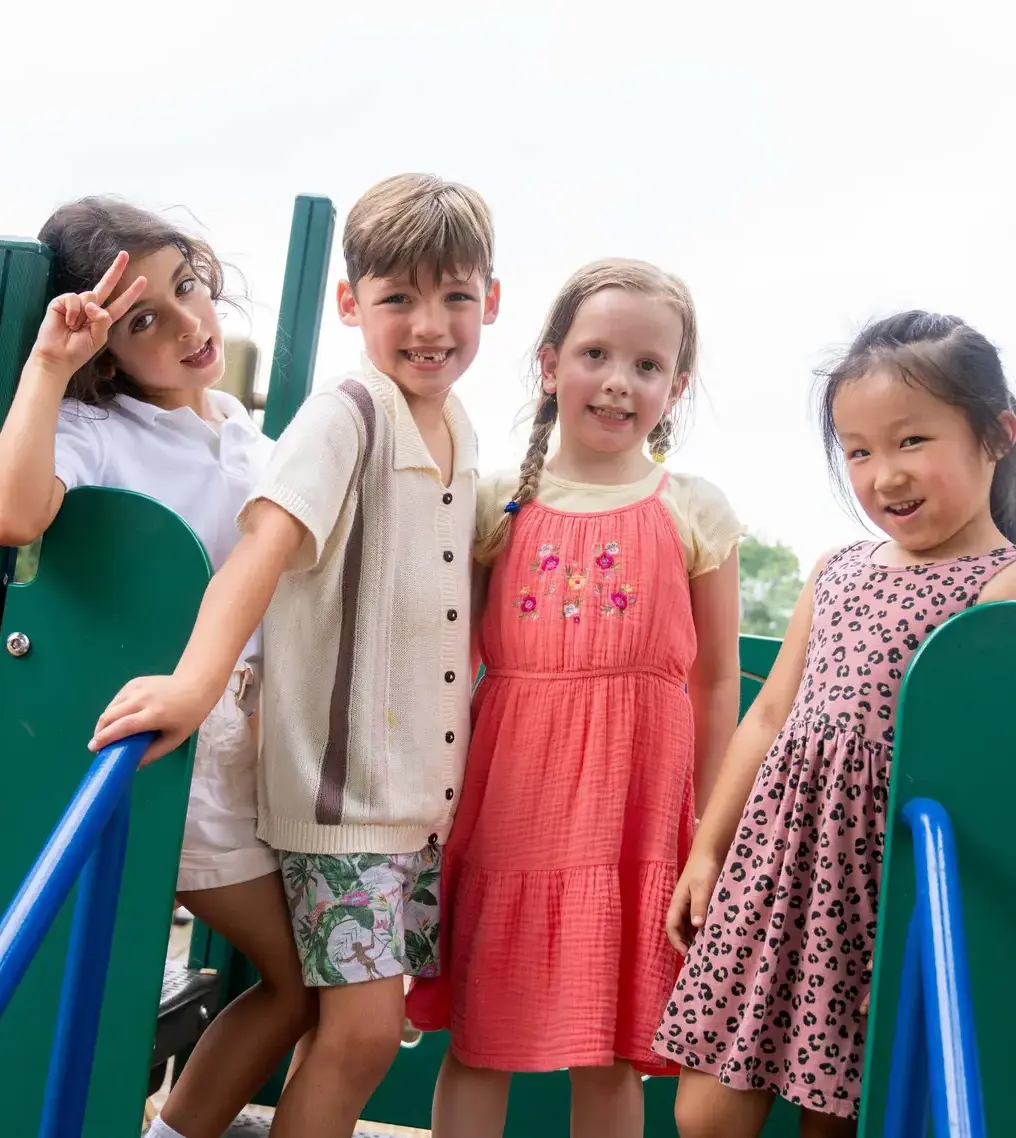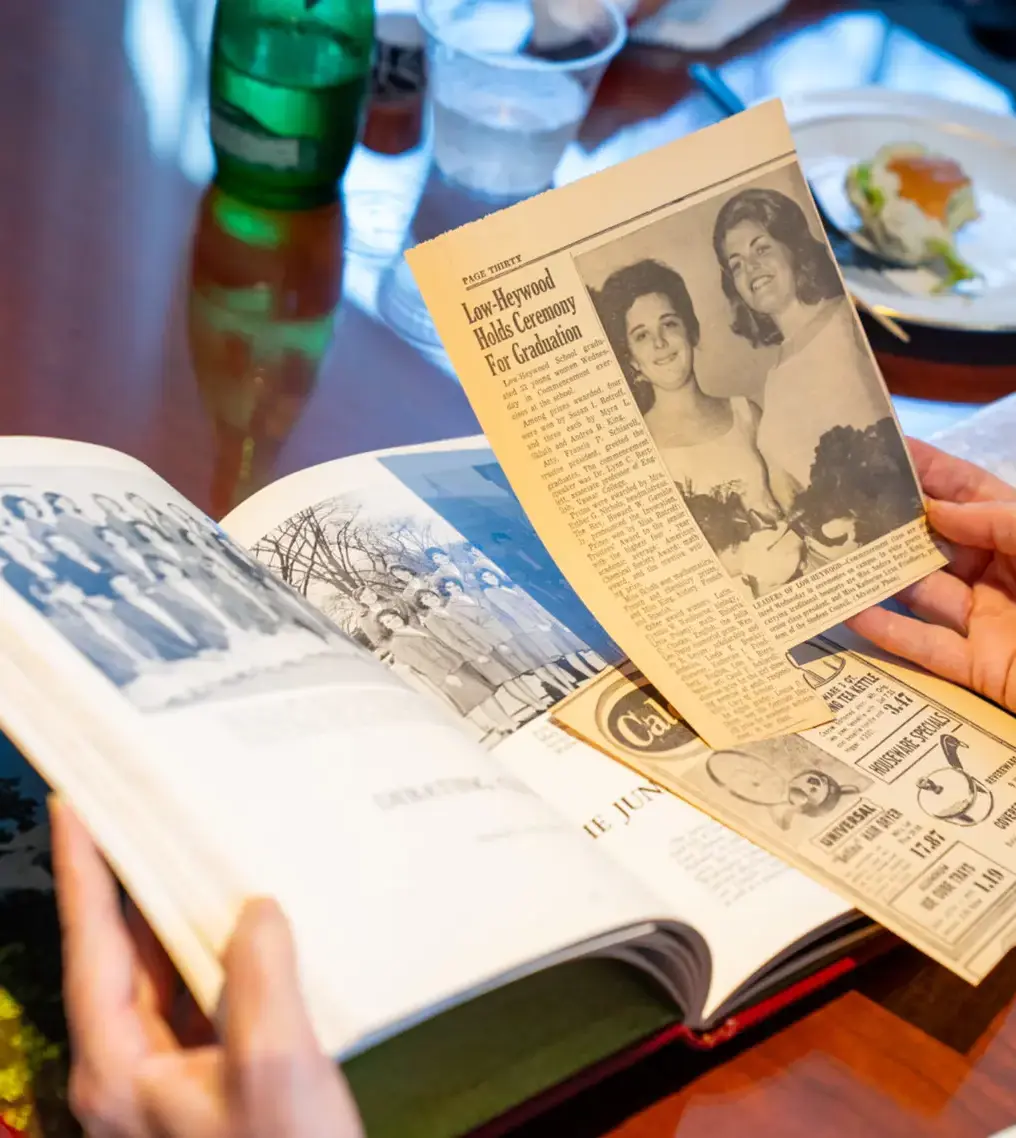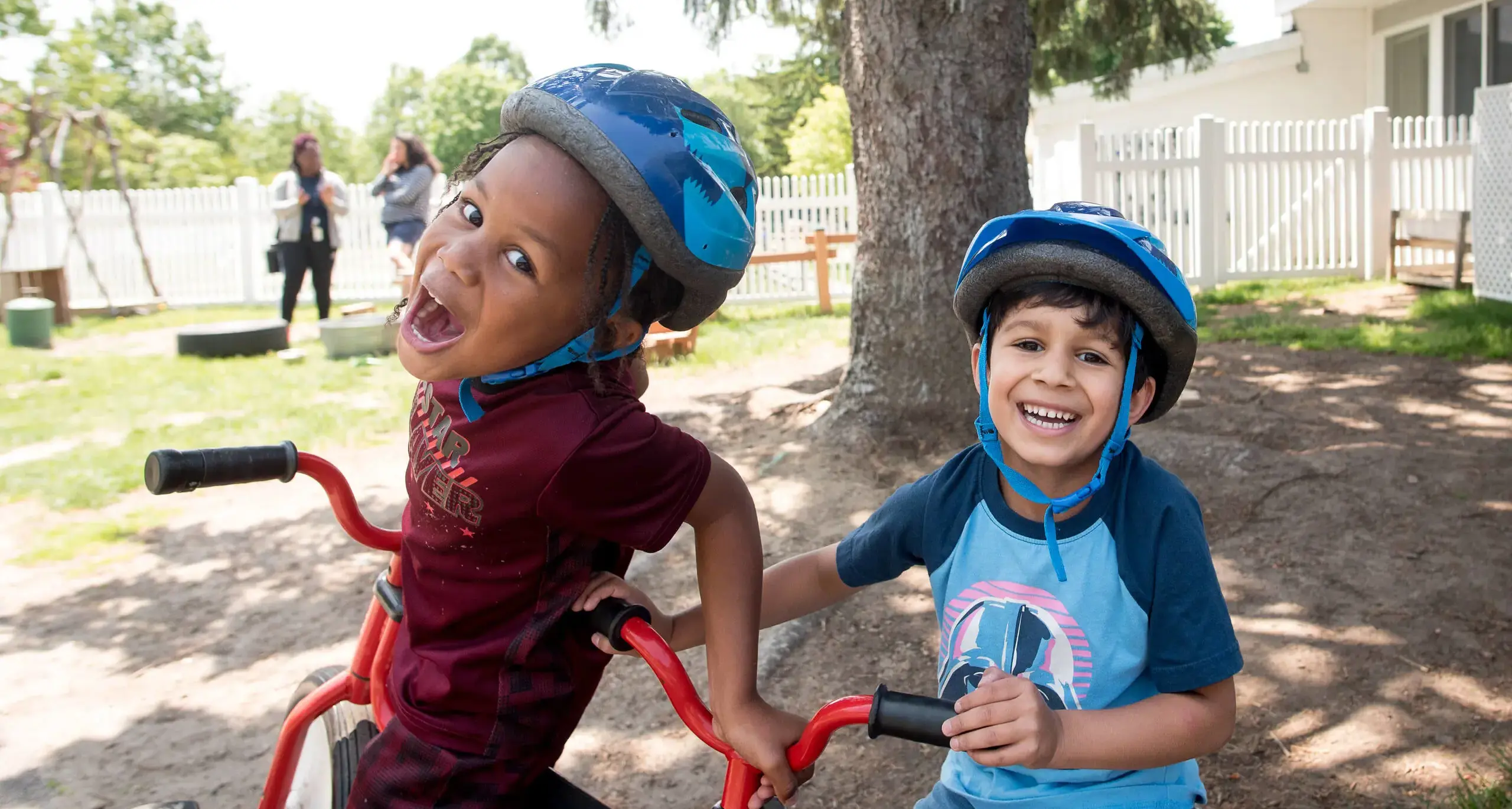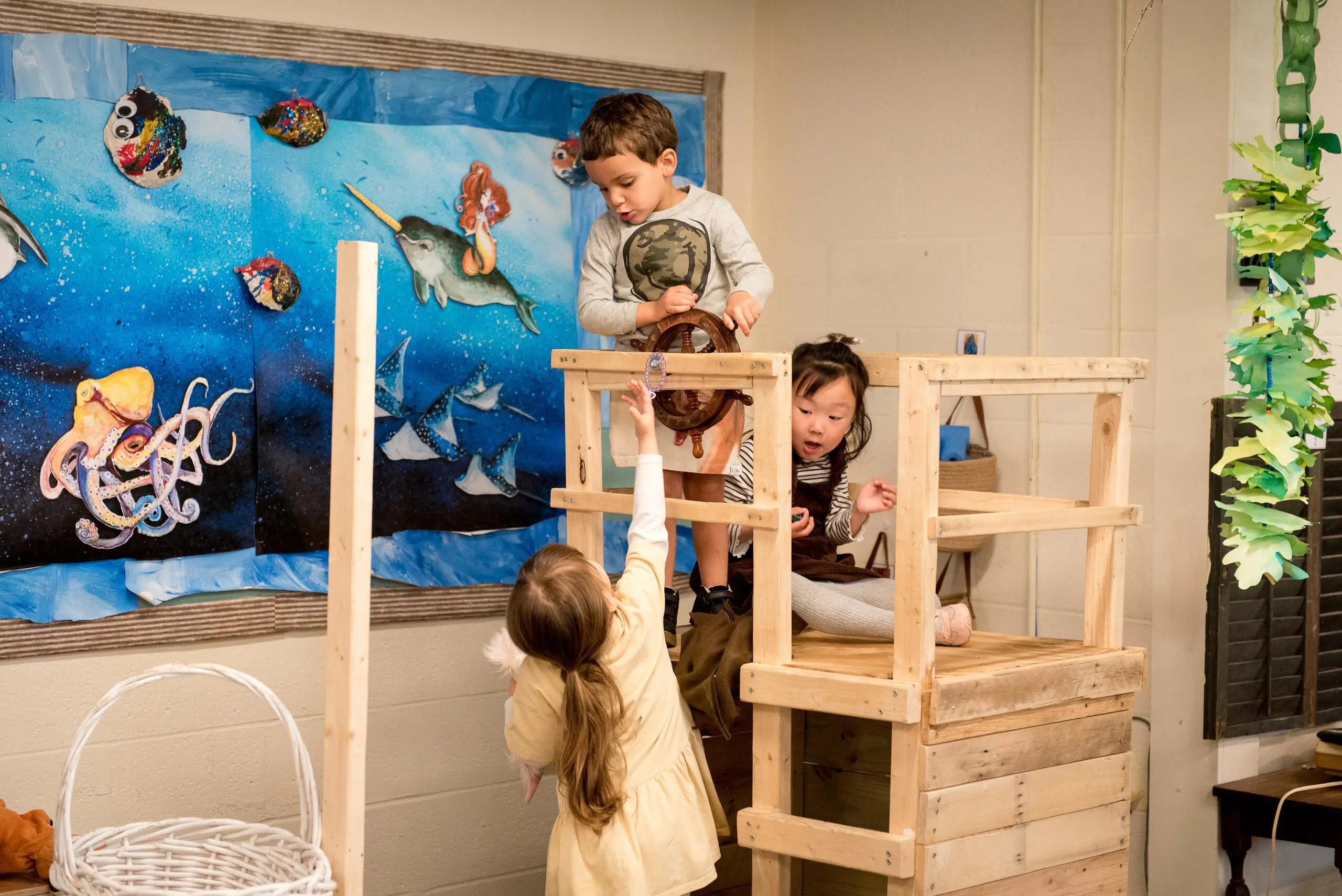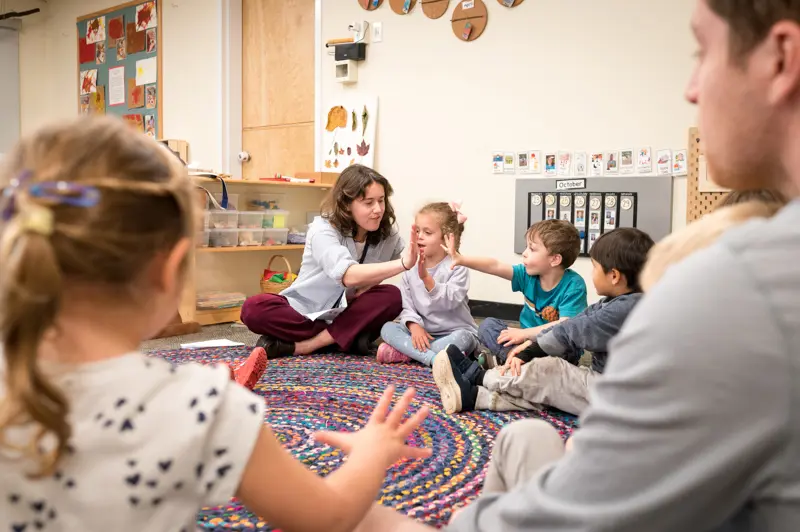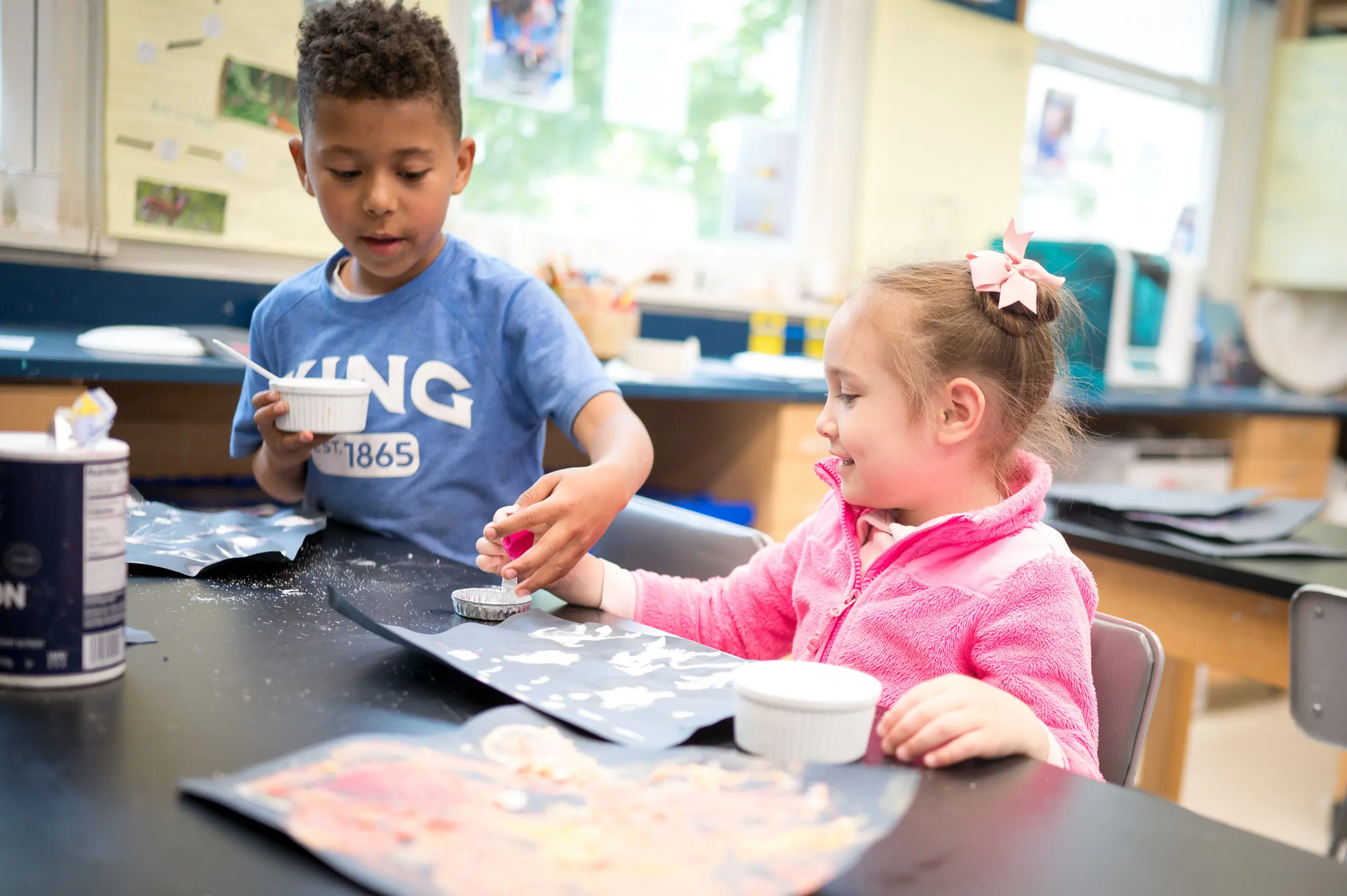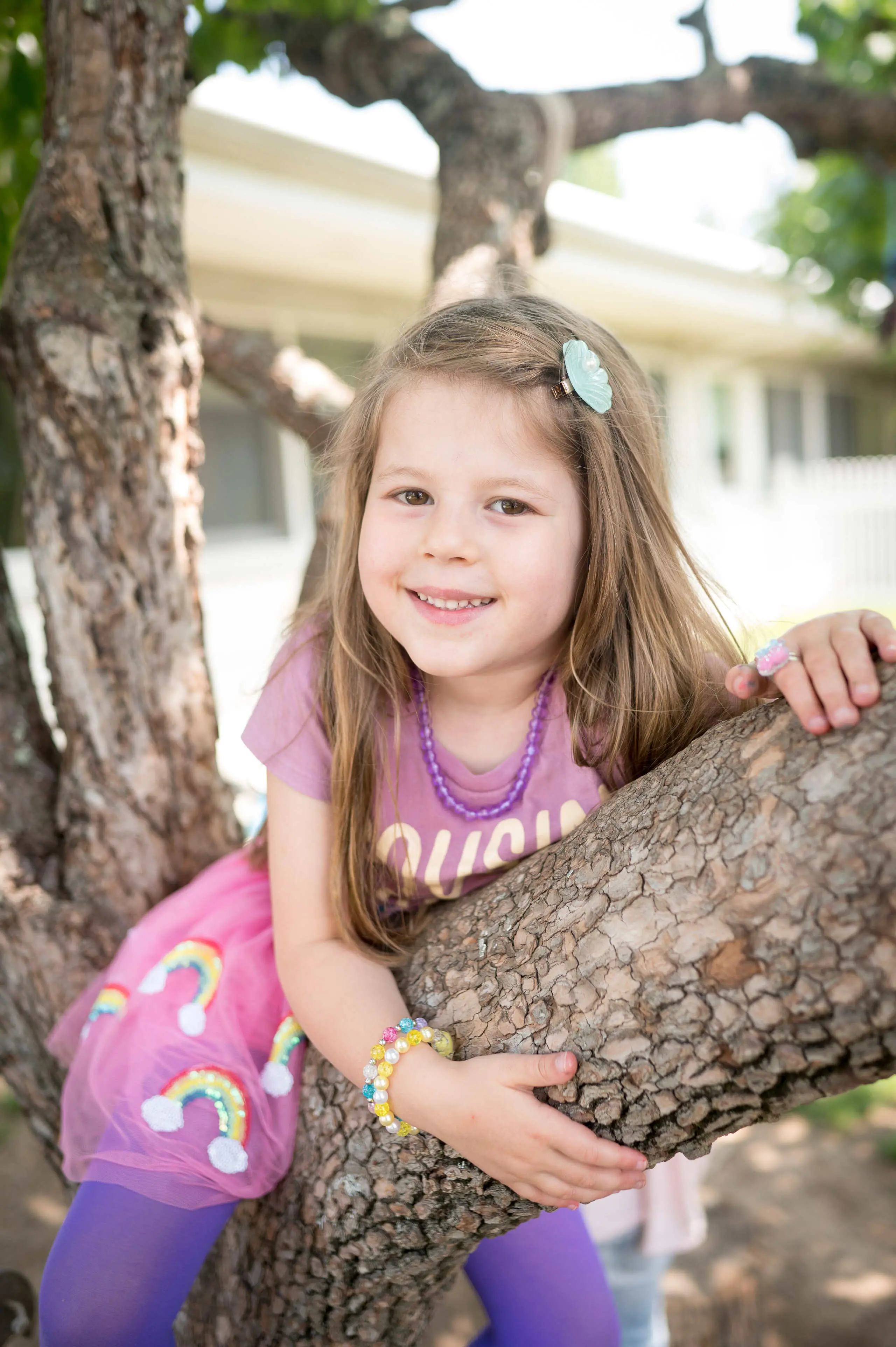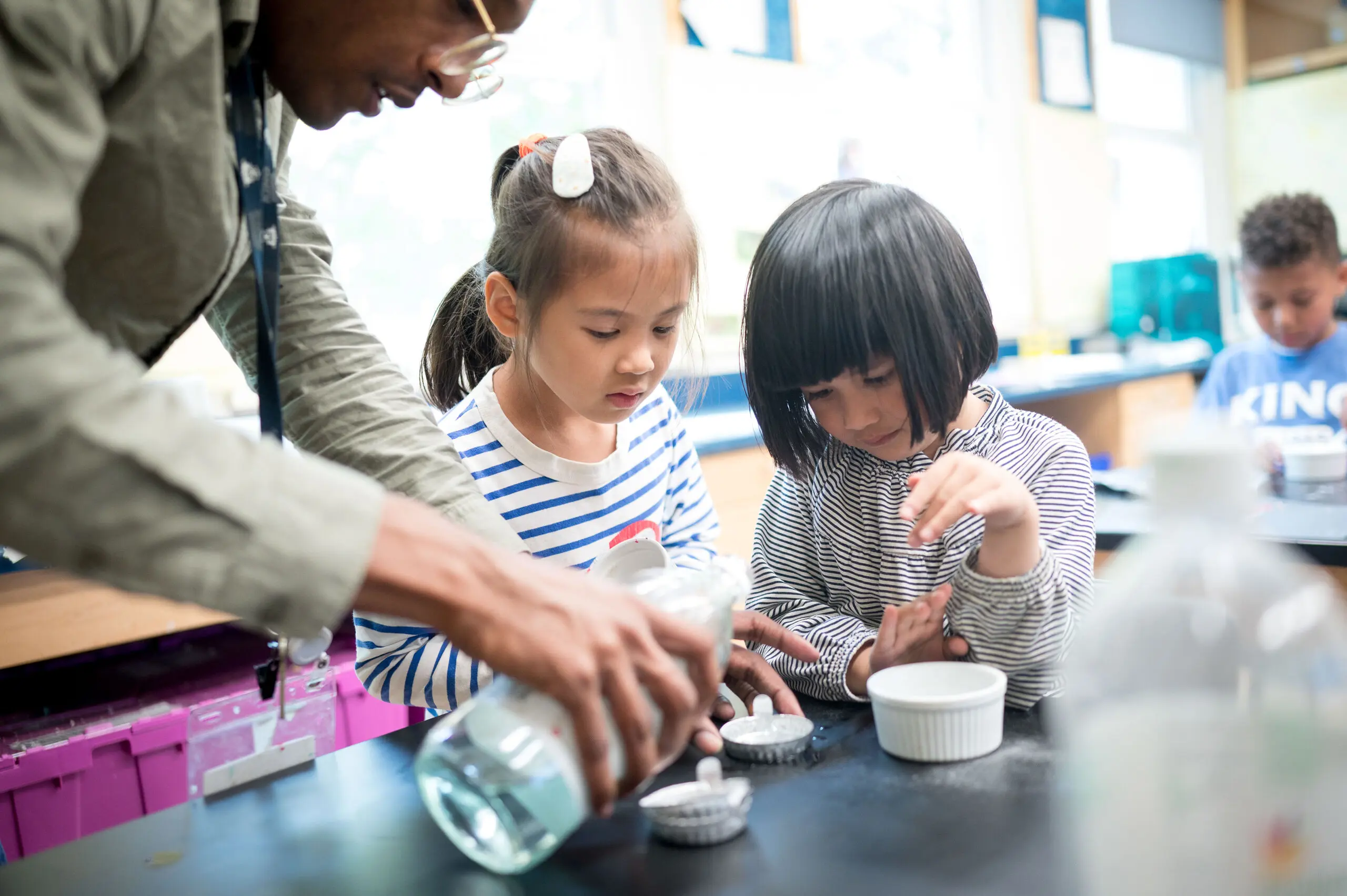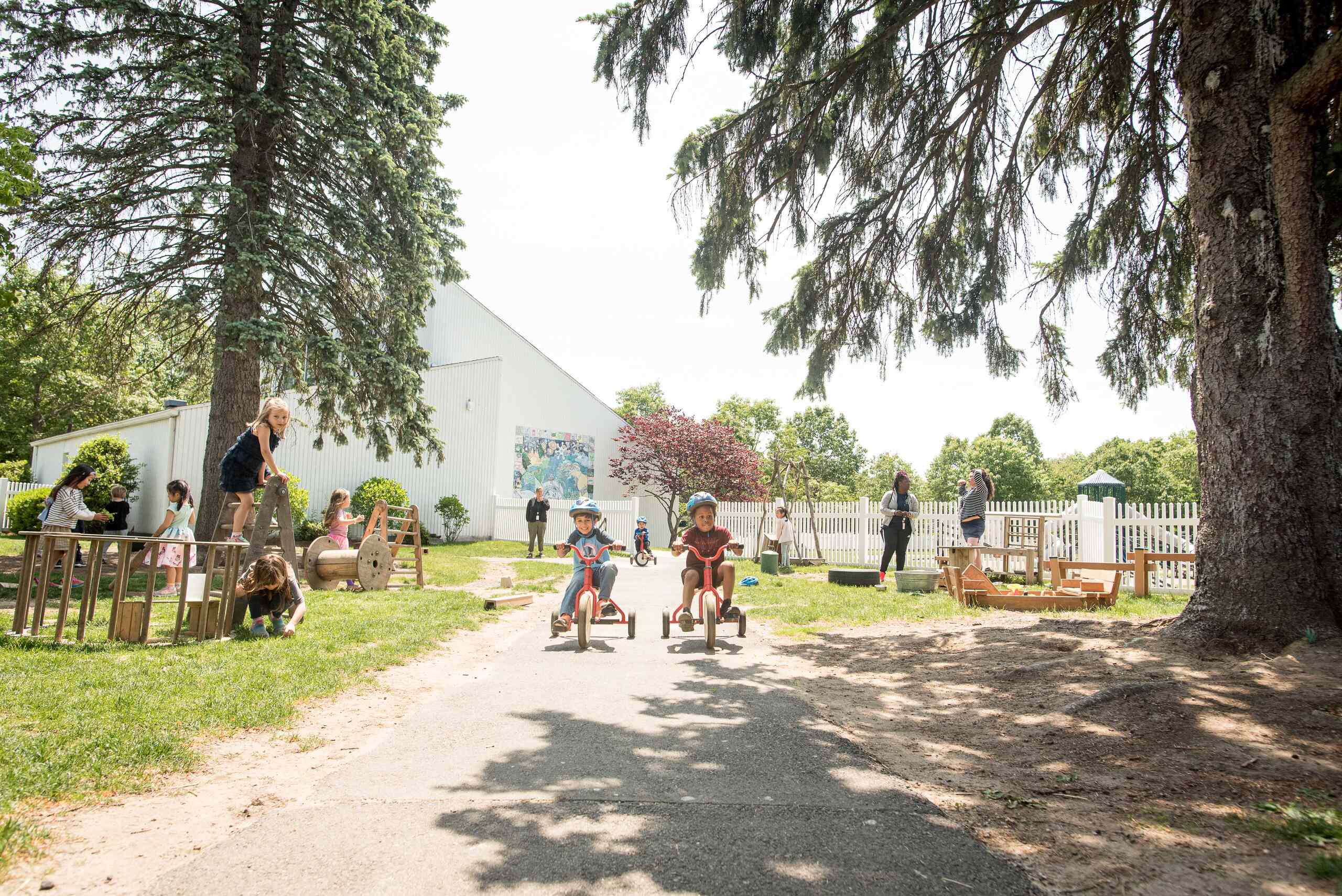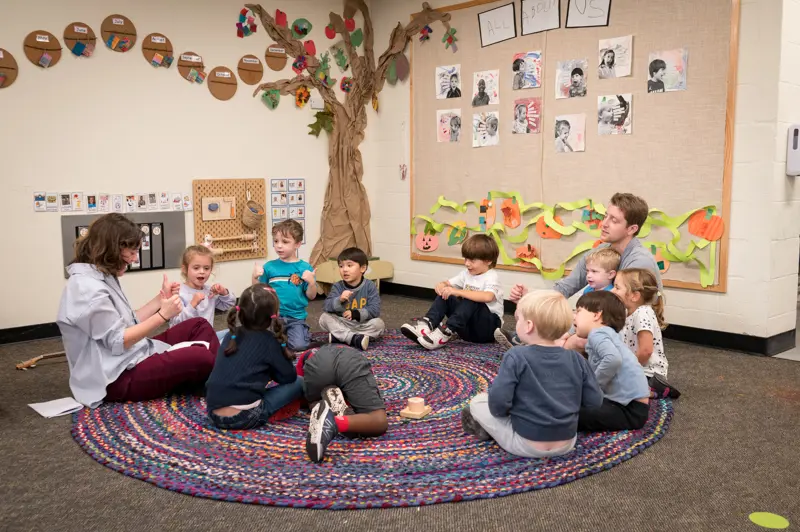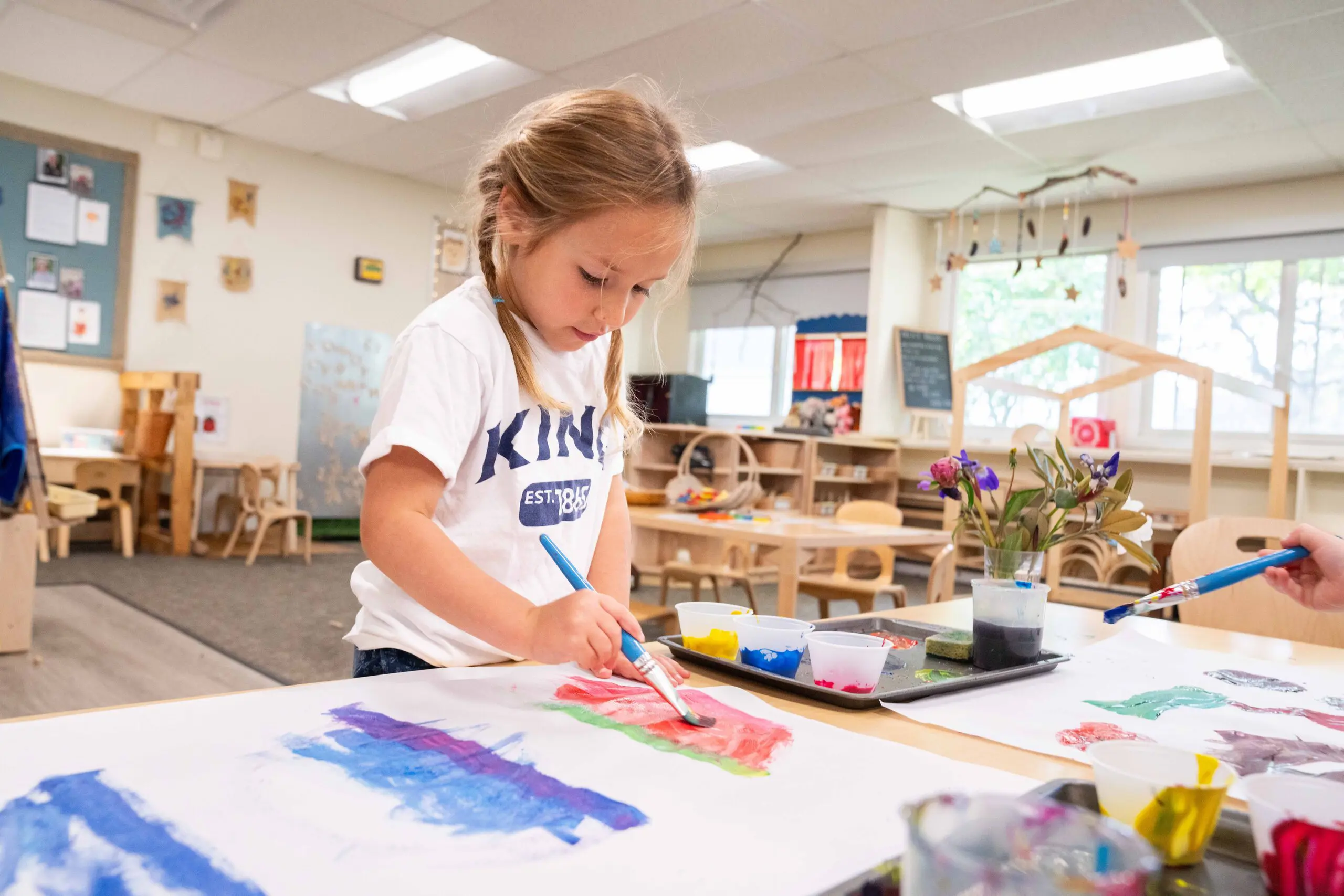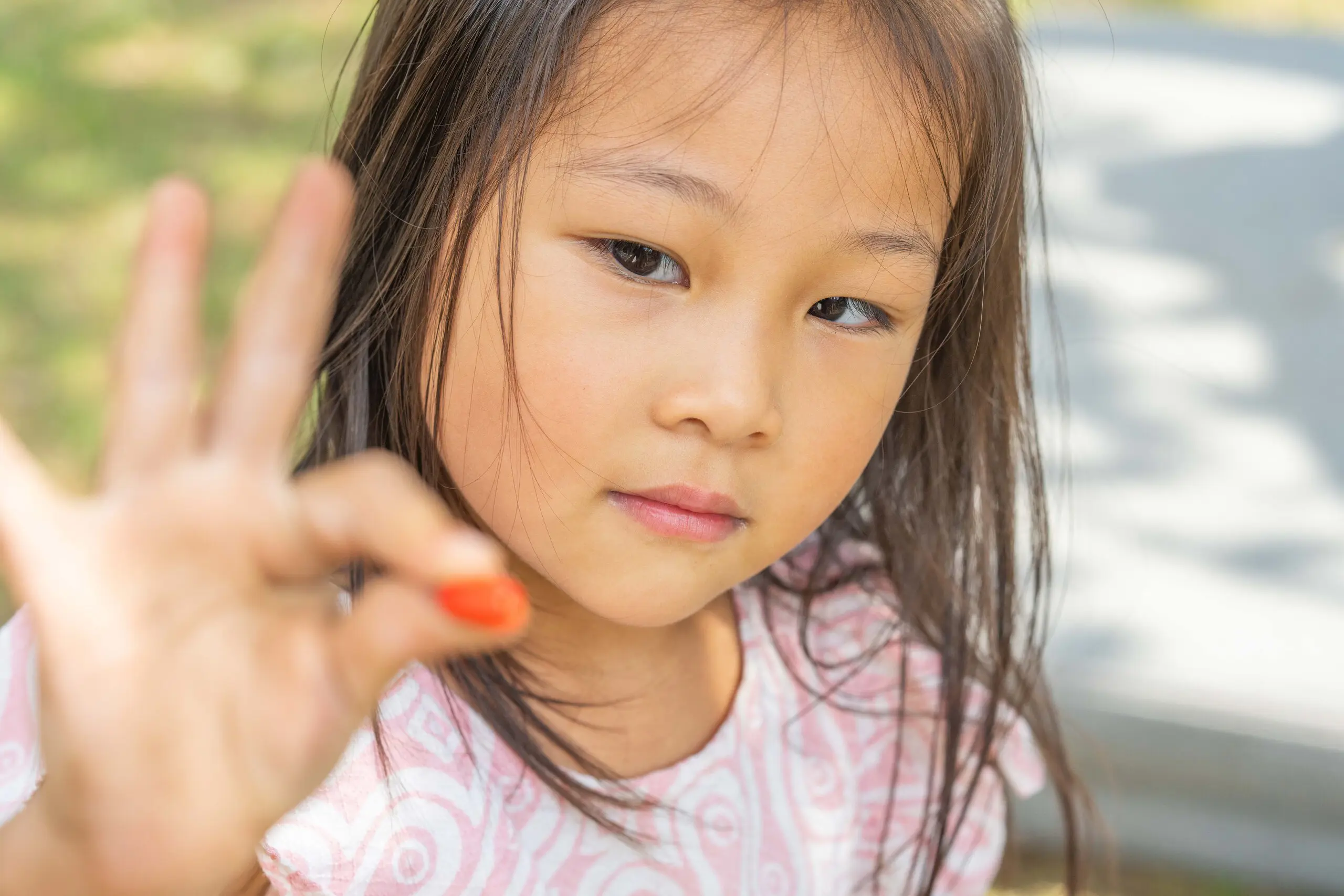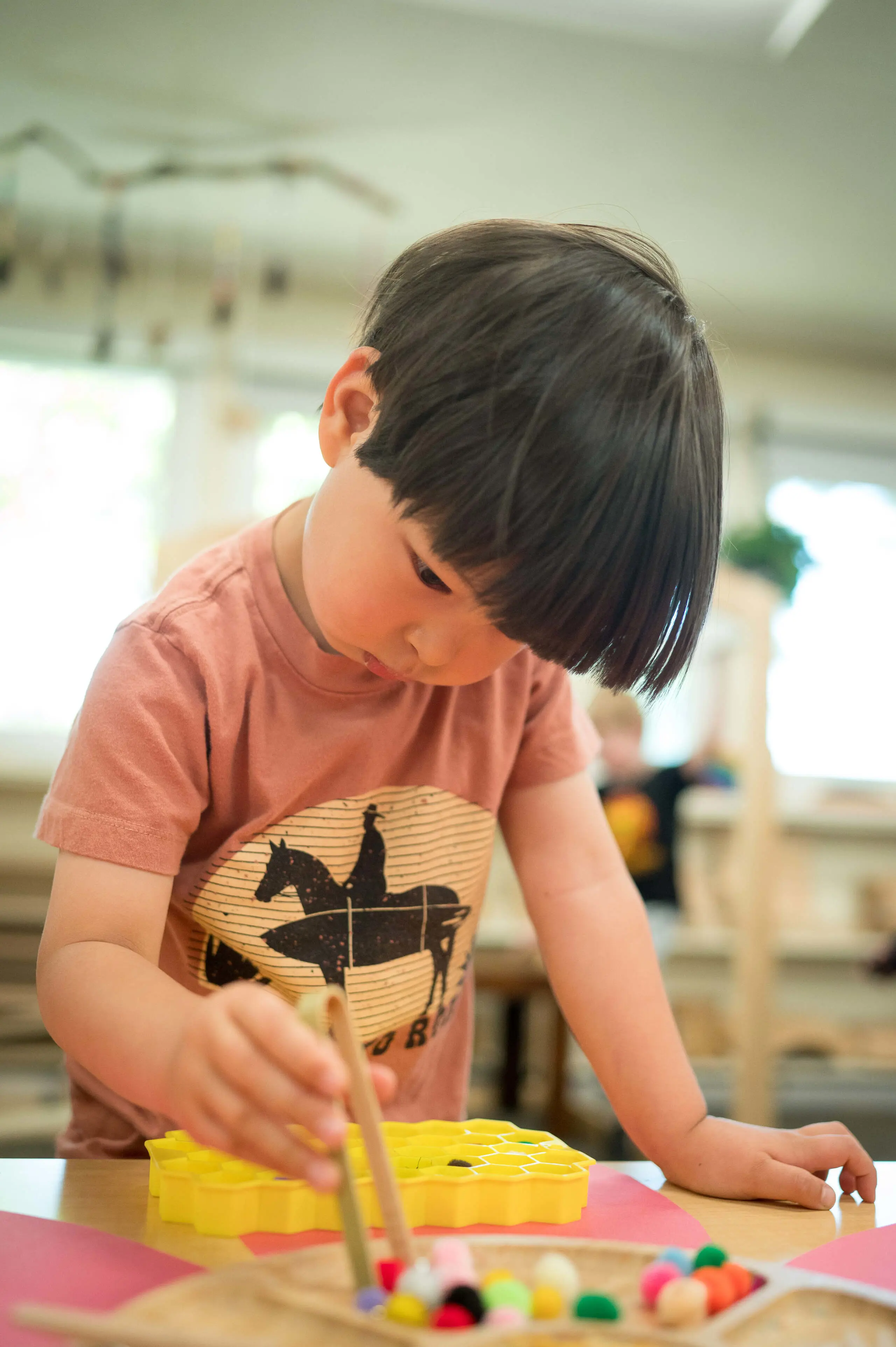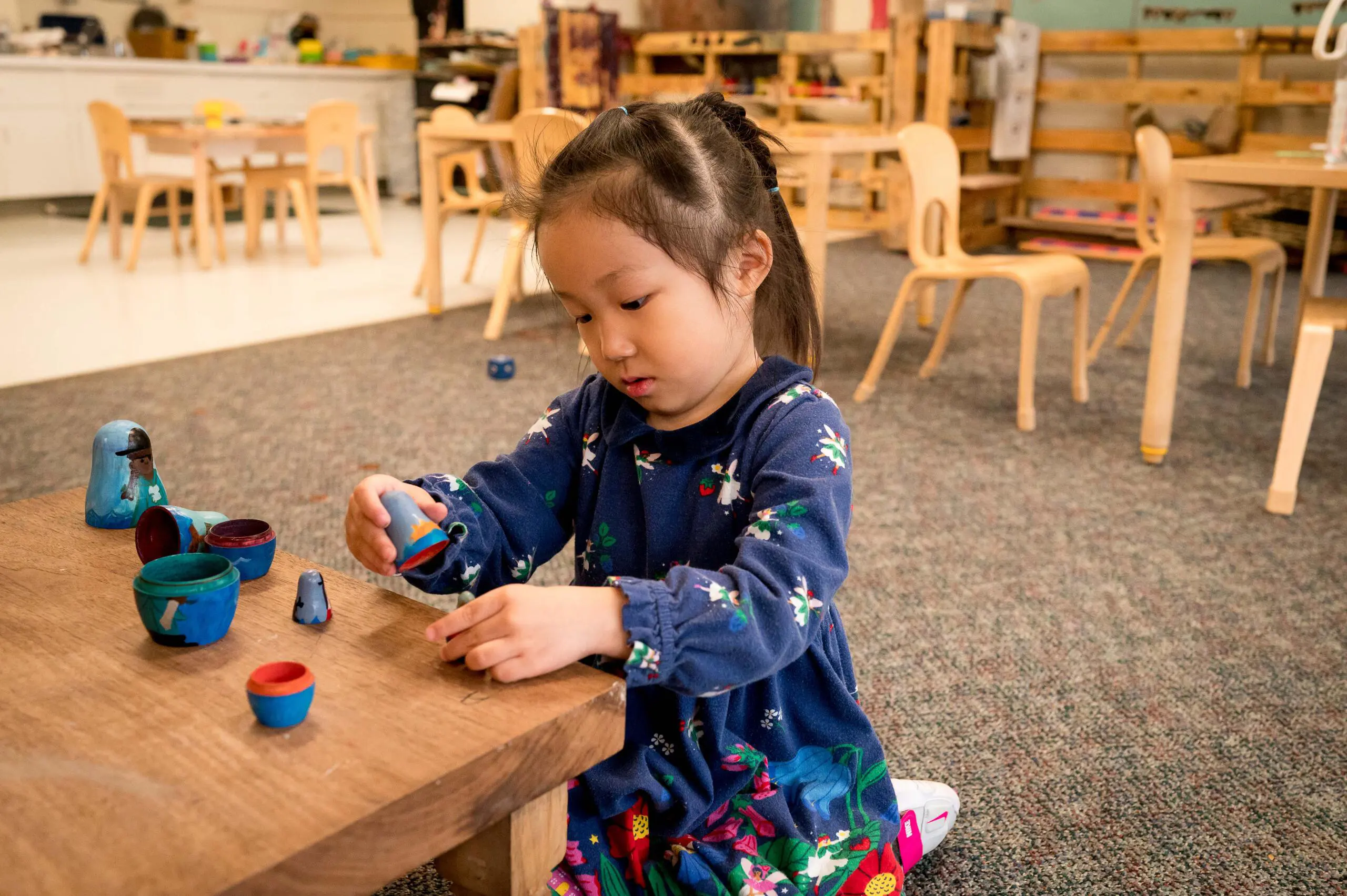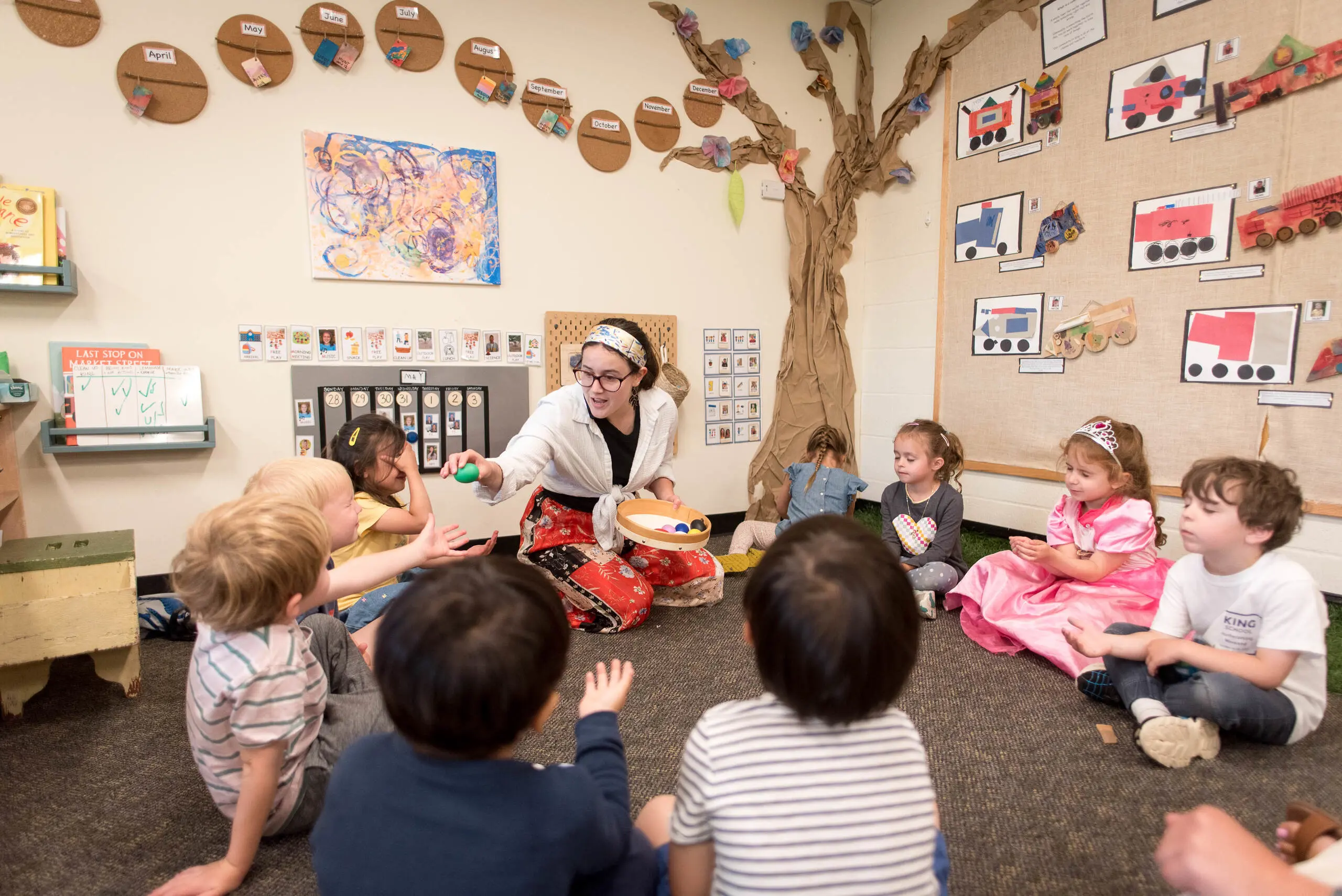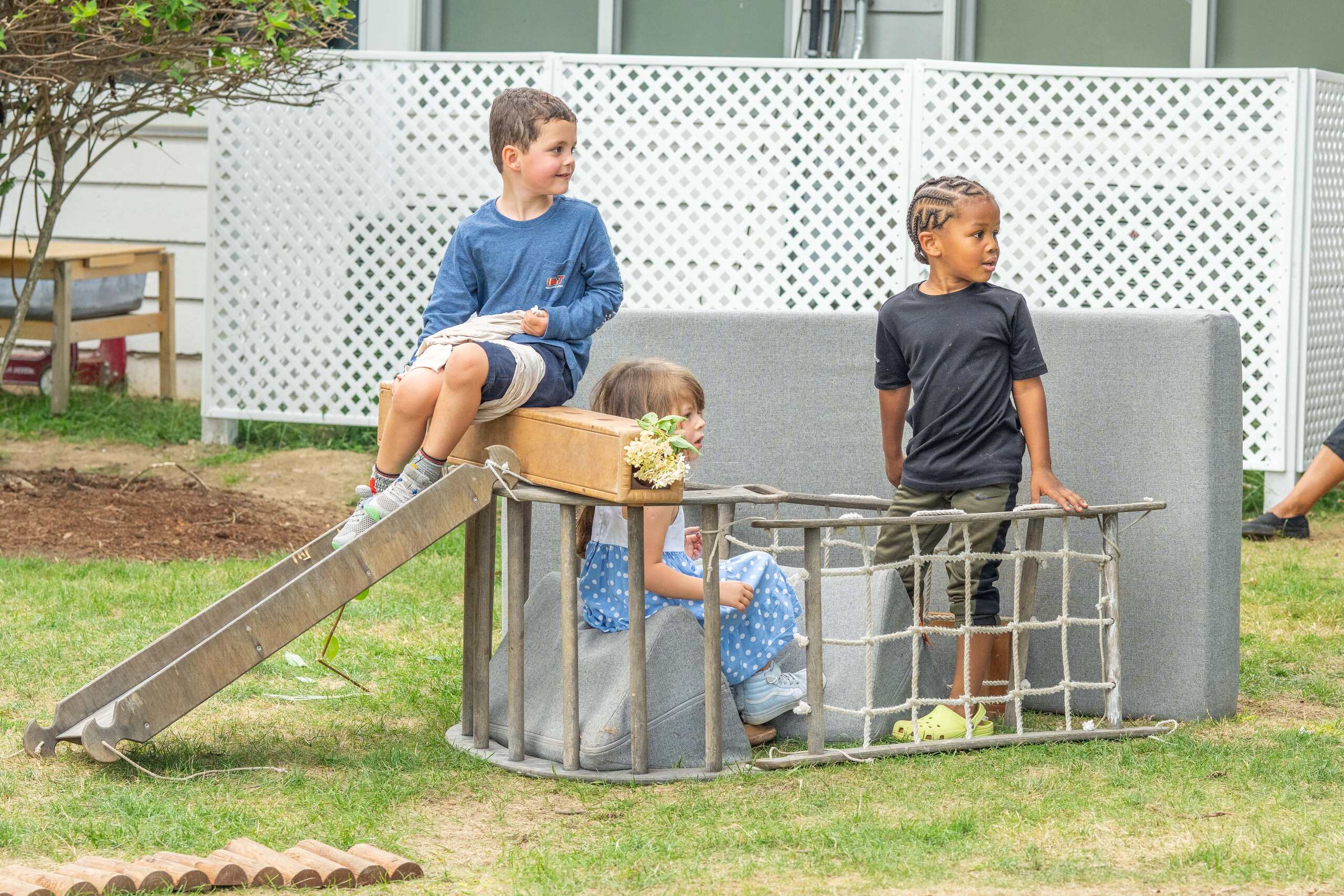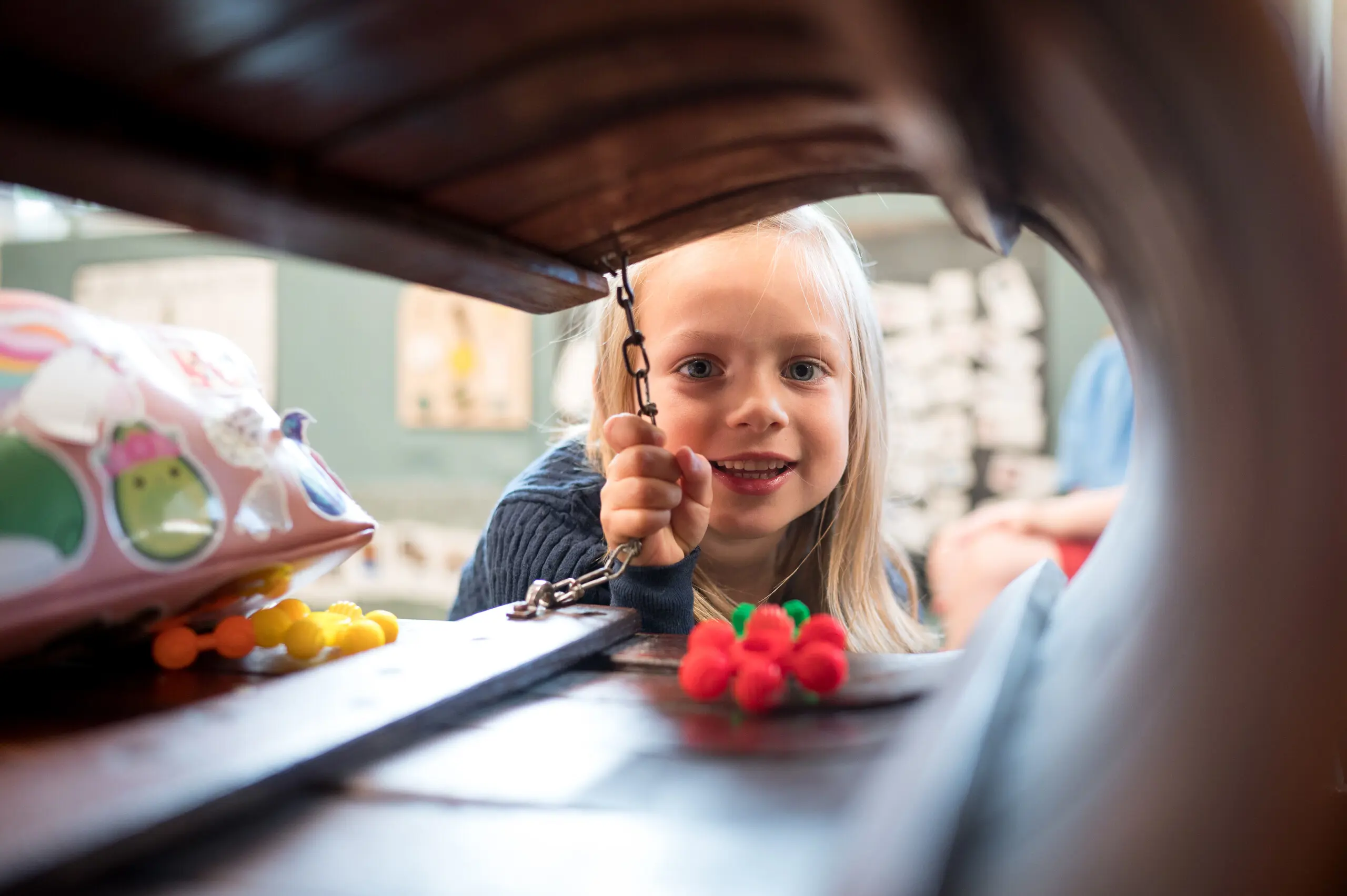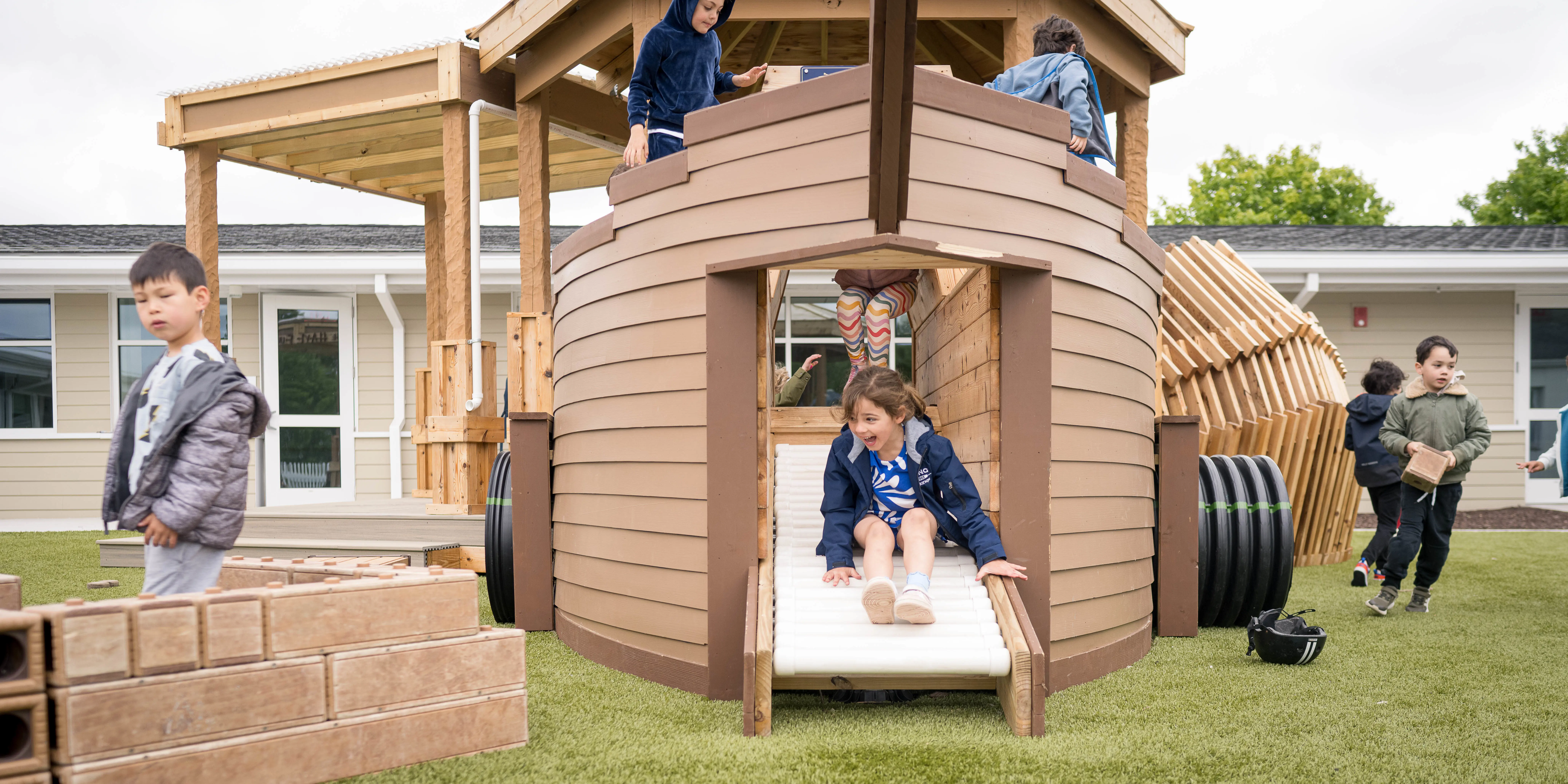Early CHILDHOOD
Learning in Early Childhood
At King, curiosity leads to exploration, and exploration leads to a mastery of foundational skills in all areas of our curriculum. Our youngest students see education as a way to experiment, create, construct, and connect. In the process, they develop a more expansive mindset. They experience education as a path of discovery, understanding, wonder, and joy.
These ideas are grounded in the Reggio Emilia-inspired, project-based teaching and learning practiced at King School. Starting at age 3, we encourage our Prekindergarten and Kindergarten learners to collaboratively explore their environment within intentionally created classroom spaces that allow children to actively engage in their learning.
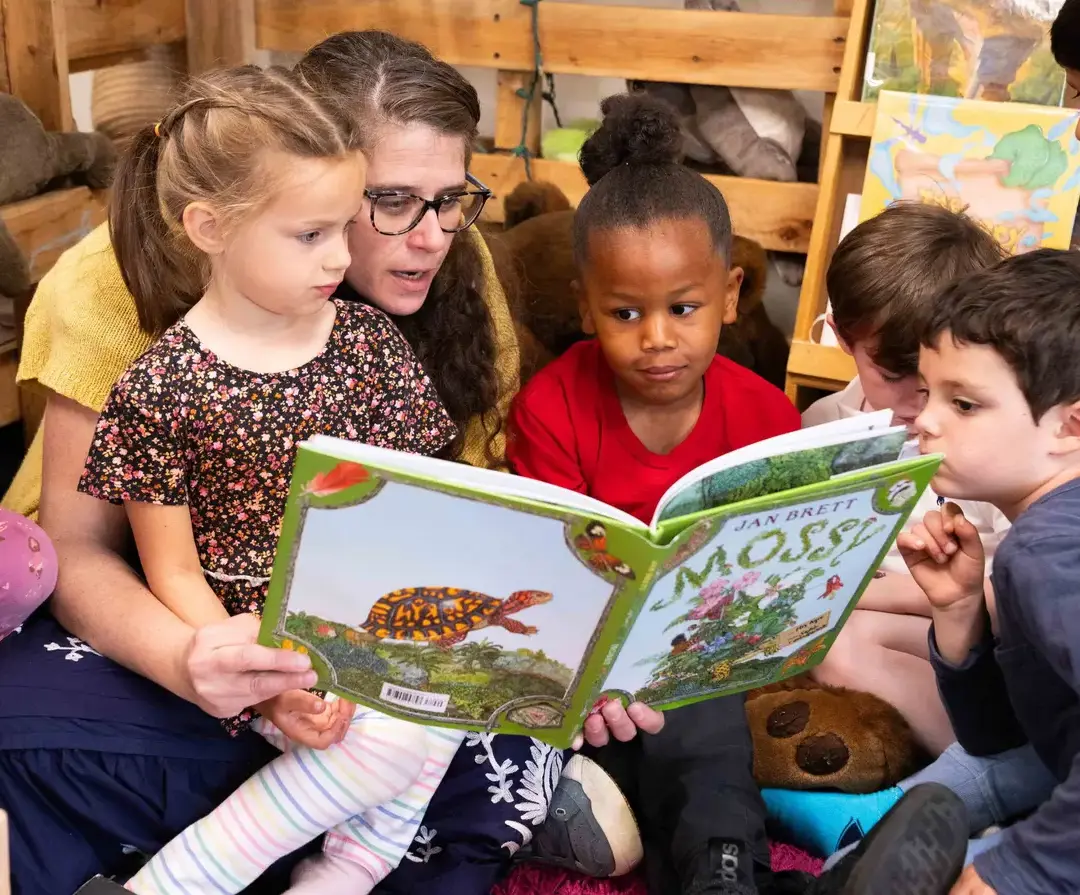
Project Learning and the Foundations for Self-Discovery
King uses project-based teaching and learning in our Prekindergarten and Kindergarten classrooms, this supports the developmental range of our students as part of our private Early Childhood Education program.
King’s teachers create learning opportunities that incorporate students’ ideas and interests; our program encourages students to ask questions, gather data, learn research skills, make models, and share their learning with their peers.
Academic emphasis areas include language, early literacy development, math, and science. Our teaching teams carefully curate the materials used in our classrooms.
Children are encouraged to express their understanding of the world through a multitude of resources, including art supplies, building blocks, pencil and paper, and the tools of a scientist.
An Organic and Natural Way for Children to Learn
- Prekindergarten
When our youngest learners enter King classrooms at age 3 or 4, they arrive naturally curious and full of wonder and joy.
As they set out to learn about topics that interest them, and solve problems uncovered by their discoveries, they rely on primary sources and share the knowledge they gather in projects and demonstrations. In the process, they develop a deeper understanding of the value of learning, the importance of asking questions, and the role of research and inquiry in informing them about the world and about themselves.
- Kindergarten
Kindergarten students and their teachers take project research to new heights, as they look across the King campus to understand more about themselves and their school community.
Project studies are focused on topics of interest to students, and solving problems encountered along the way; students interact with primary sources and share their knowledge through projects and demonstration.
Through project work, children are encouraged to be academic risk takers in a safe, secure environment. Within the context of a familiar, accepting classroom, they also try new activities such as acting in a play or standing in front of a group to perform a song. They learn that making a mistake is acceptable and part of the learning process. Children gain an awareness and appreciation of other people, both within our classroom and in the larger school community.
Opening Fall 2025: Early Childhood Center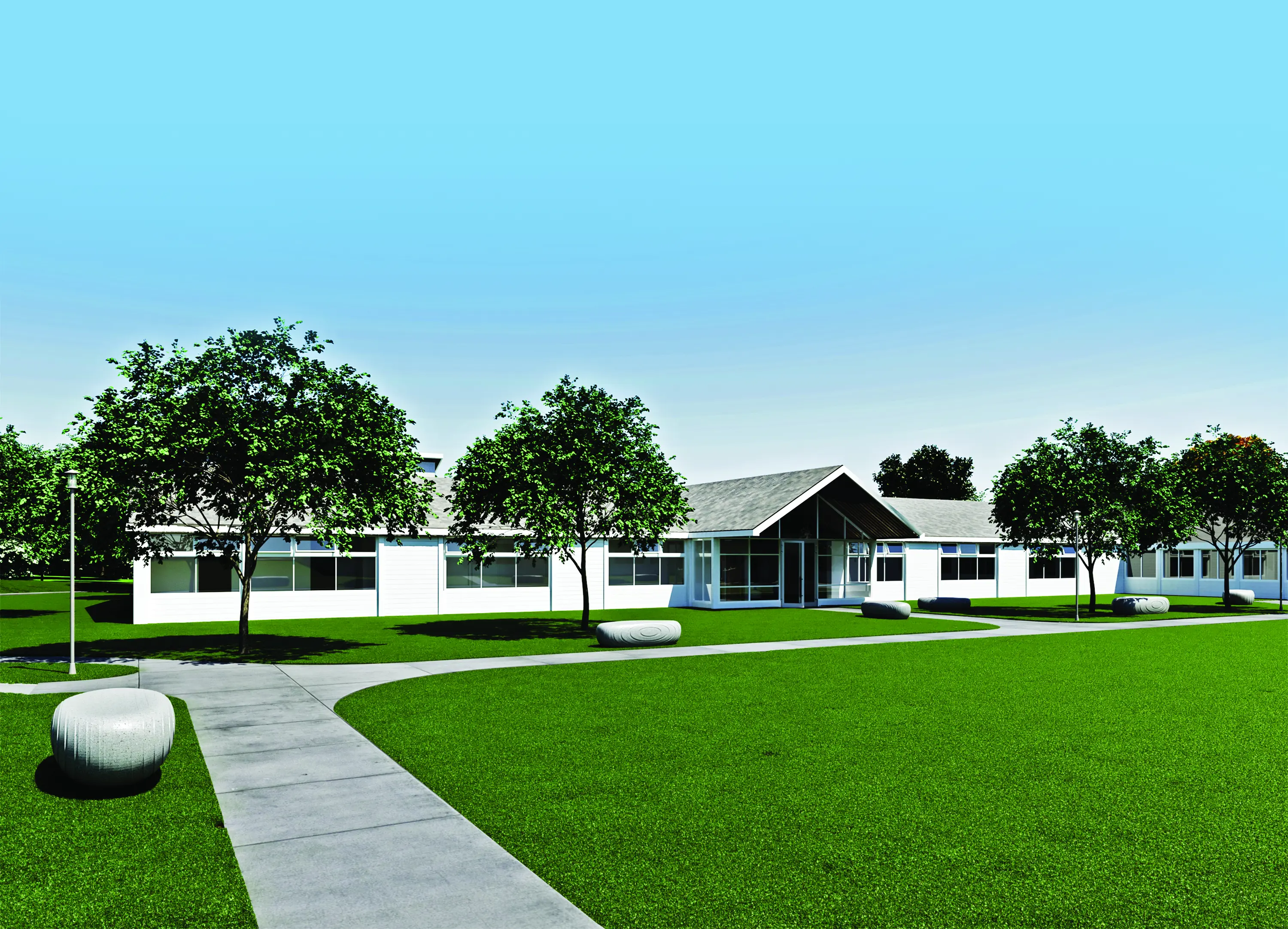
At King, wonder meets intentional education. King School's new Early Childhood Center elevates the school’s longstanding student-centered, creativity-focused approach to education with a state-of-the-art facility designed to further enhance children's learning experiences.
The reimagined space supports the school’s Reggio-Emilia-inspired program by seamlessly blending indoor and outdoor learning and by allowing King’s youngest learners to imagine and explore their surroundings.
Purposefully designed zones encourage collaborative learning, supporting children's natural curiosity through intentionally crafted environments and teachers’ expertise and guidance.
King’s early childhood program welcomes children starting at 3 years old, offering a nurturing environment where young minds grow and thrive.

